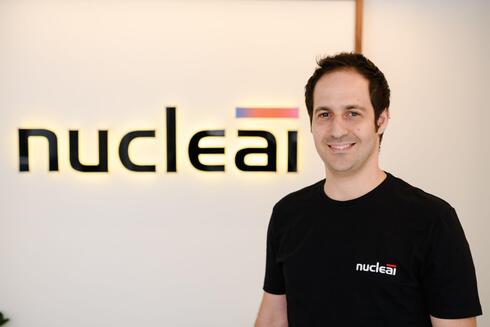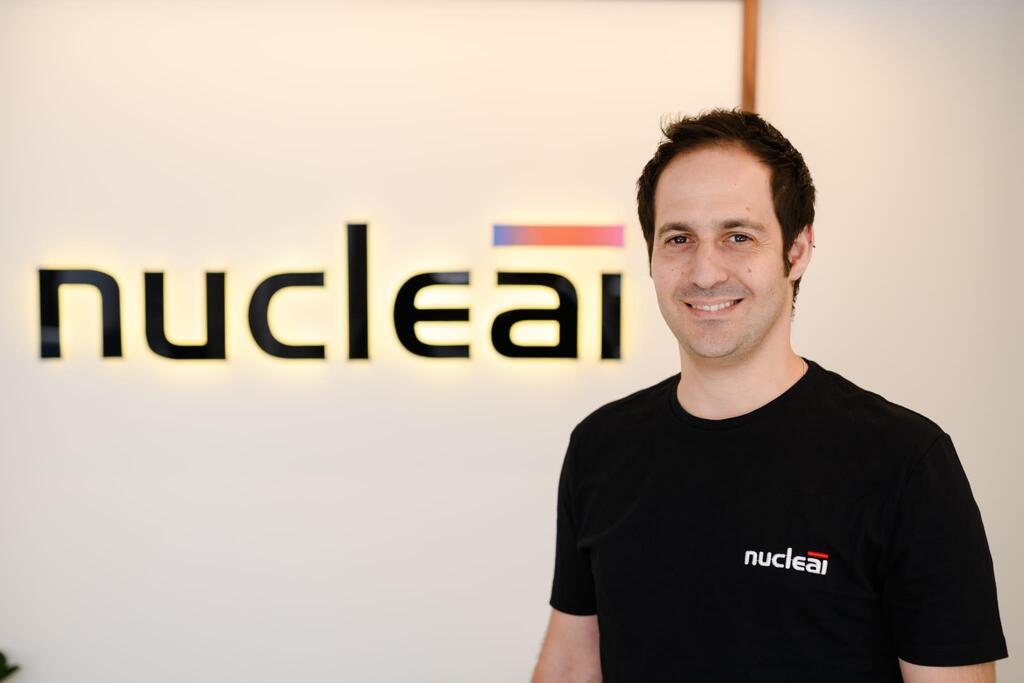
HR in War
How have international stakeholders responded to Startup Nation since 7/10?
Nucleai helped its global customers and investors understand the magnitude of October 7 by comparing it to 9/11 in the U.S.
“In an era where news spreads quickly, especially through social media, many of our customers and investors were already aware of the unfolding situation by the time we reached out,” explained Guy Kolb, Head of HR at Nucleai. “To help them grasp the gravity of the events and how they were impacting us, we drew a parallel with the 9/11 terrorist attacks. This comparison served to contextualize the scale of the event and the emotional toll it was taking on our team and operations.”
HR in War is a new series exploring how companies in Israel are adapting in unusual times. At CTech we believe the world should know about the atrocities committed on 7/10 while at the same time highlighting the continued resolve and resistance of the Israeli tech ecosystem.
“The response from our stakeholders was overwhelmingly empathetic and supportive,” he continued. “The level of support exceeded our expectations, and we are profoundly grateful for the understanding and encouragement we've received during this challenging time.”
Company name: Nucleai
Your name and title: Guy Kolb, Head of HR
Names of founders and upper management: Avi Veidman, Lotan Chorev, Eliron Amir
Field of activity: AI, Healthcare, Biotech
Number of employees: 110
Office location: Tel Aviv
On a scale of 1-10, how much did the war disrupt operations at the company?
Seven. The recent conflict has had a profound impact on our operations, both emotionally and practically. This is a unique situation for our generation in Israel, affecting us on deeply personal levels. Many of us have close connections to individuals who have been directly harmed by the war, creating a challenging emotional landscape within the company.
Practically speaking, a number of our team members have been called up for reserve duty, which has inevitably led to a reduced workforce. Despite this, we have had to maintain the same operational goals, as the majority of our customers are based abroad. While they have been empathetic towards our situation, their business needs have not changed.
Before the war, we operated in a hybrid work mode—three days in the office and the rest remotely. Now, we have shifted to a fully remote model to ensure the safety of our team. Fortunately, the remote work systems we put in place during the Covid-19 pandemic have made this transition smoother than it otherwise might have been. Overall, the disruption has been significant, but we are doing our best to adapt and persevere.
What consequences have you experienced from these disruptions?
The disruptions have led to both operational and emotional challenges that we've had to navigate carefully. Operationally, our employees are facing increased workloads as they cover for colleagues who are unavailable due to reserve duty or other circumstances. The stress of these added responsibilities is palpable, leading to a noticeable decline in overall team morale.
To adapt, we've had to pivot on several fronts. For instance, we transitioned to a fully remote work setup, equipping employees with the necessary tools and technology to work from home. We've also streamlined our operational focus to prioritize only the most critical and time-sensitive tasks. New hires are onboarded remotely.
From an HR perspective, employee well-being has emerged as a top concern. The war has significantly escalated levels of stress and anxiety, impacting productivity and overall focus. To counteract this, we've put in place a range of supportive measures, including access to mental health resources and the introduction of flexible working hours to accommodate the unique challenges employees are facing during this time.
What are the two major challenges you are coping with these days?
The two major challenges are operational and emotional.
What support do you provide to employees?
We have undertaken a multi-faceted approach to support our employees during this challenging period.
- Immediate Safety Checks: Our HR team and managers initiated calls to every employee to ensure the safety of our staff and their families. We set up a 'war room' to coordinate these efforts and serve as a hub for critical updates.
- Mental Health Support: Recognizing the emotional toll of the situation, we implemented a series of wellness activities. These included mindfulness sessions tailored for adults as well as specialized sessions for our employees' children.
- Support: For those called to reserves, or whose partners were called up, we augmented their meal budgets to ease their daily tasks.
- Encouraging Volunteering: We took a dual approach to volunteering to not only contribute to the wider community but also to strengthen our team's mental resilience. Our Talent Acquisition team launched 'Tech Dome,' which connects engineers with projects to support ongoing efforts related to the conflict. Additionally, we initiated a donation matching program, which totaled 50,000 Shekels in contributions.
- Routine and Productivity: In an effort to restore a sense of normalcy, we've been emphasizing the importance of establishing daily routines. Managers hold brief morning meetings focused on three key areas: emotional check-ins, sharing work completed, and outlining the day’s objectives. The goal is to reduce stress and maintain focus on essential tasks.
- Team Contracts for Remote Work: Given the shift to remote and flexible work, we advised managers to develop 'Team Contracts' with their respective teams. These contracts establish agreed-upon norms for communication, availability, and meetings, ensuring productivity and strong teamwork even in a remote setting.
By taking these comprehensive measures, we aim to create a supportive environment that helps our employees navigate both the emotional and practical challenges posed by the current situation.
Do you have employees with foreign citizenship who asked to work from another country? If so, has movement been requested/approved?
No.
How do you communicate the situation to customers? Do you see hostility or support?
In an era where news spreads quickly, especially through social media, many of our customers and investors were already aware of the unfolding situation by the time we reached out. To help them grasp the gravity of the events and how they were impacting us, we drew a parallel with the 9/11 terrorist attacks. This comparison served to contextualize the scale of the event and the emotional toll it was taking on our team and operations.
The response from our stakeholders was overwhelmingly empathetic and supportive. In one notable instance, the CEO of a major company extended a personal invitation for our CEO to stay at his residence in the U.S. The level of support exceeded our expectations, and we are profoundly grateful for the understanding and encouragement we've received during this challenging time.
In the event employees feel they encounter hostility, how do you guide them to respond to the situation?
We didn't encounter such a situation.














